19+ Semantic Memory Examples to Download
People can recall and remember specific facts of various contexts, themes, and tones at will. The person can subjectively recall various elements and factors of the fact, which highly depends on the quality of the person’s semantic memory.
1. Neuropsychology of Semantic Memory
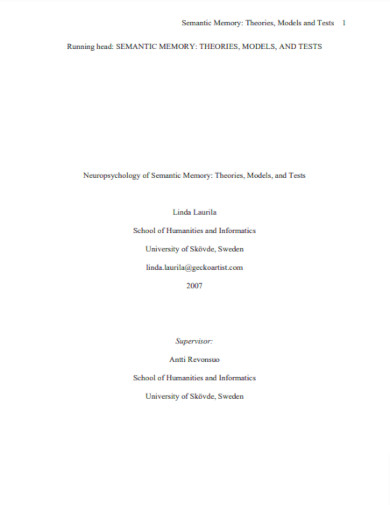
diva-portal.org
2. Simple Semantic Memory Example
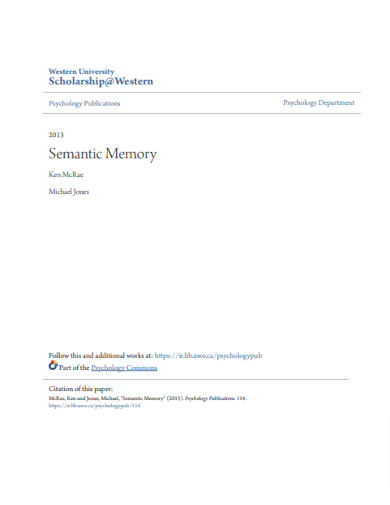
core.ac.uk
3. Neurobiology of Semantic Memory Example
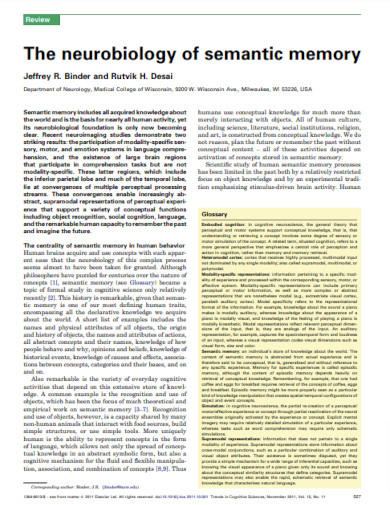
sc.edu
4. Episodic and Semantic Memory Example
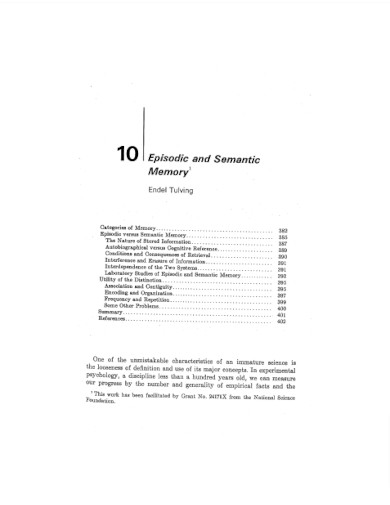
alicekim.ca
5. Semantic Memory A Review of Methods
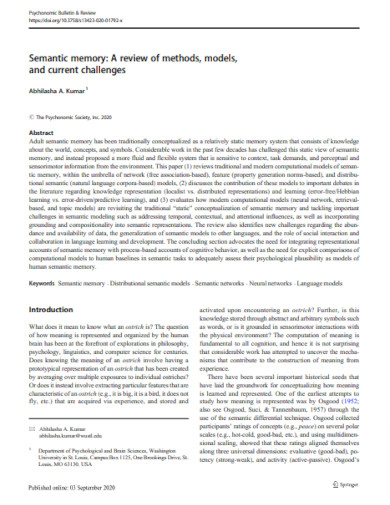
psychnet.wustl.edu
6. Instance Theory of Semantic Memory Example
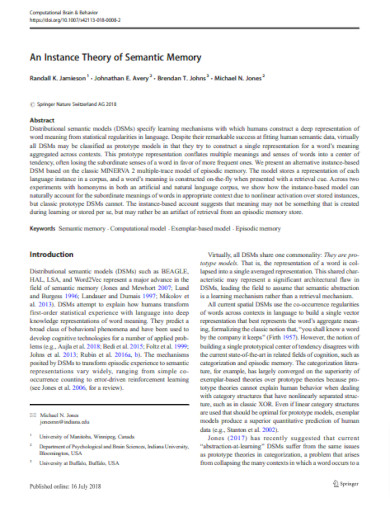
btjohns.com
7. Examining Relations Between Episodic and Semantic Memory
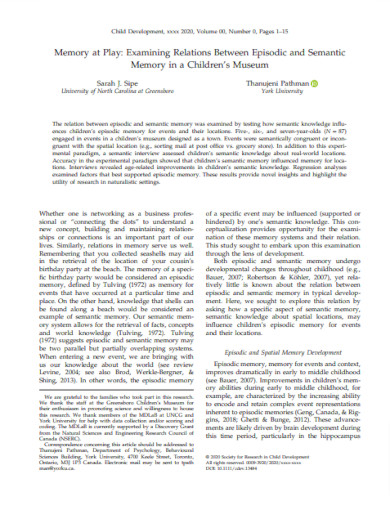
yorku.ca
8. Editable Semantic Memory Example
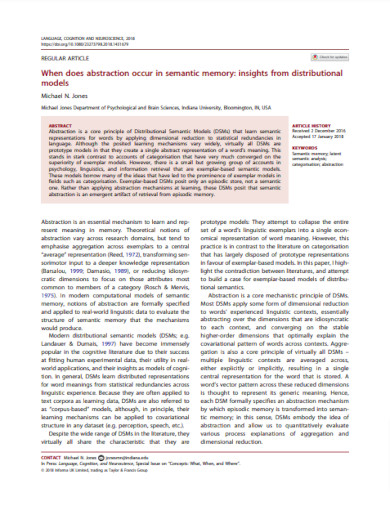
files.eric.ed.gov
9. Selective Impairment of Semantic Memory Example
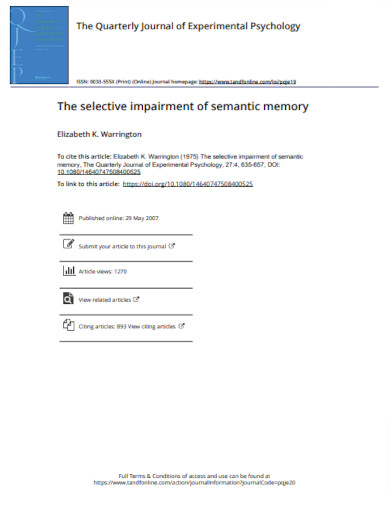
ftdtalk.org
10. The Usability of the Semantic Memory Example
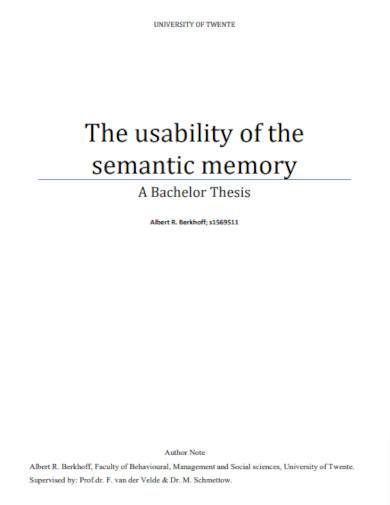
essay.utwente.nl
11. Semantic Memory and the Hippocampus Example
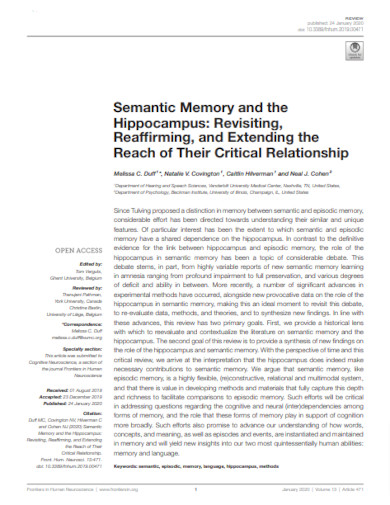
ir.vanderbilt.edu
12. Computational Model of Semantic Memory Impairment
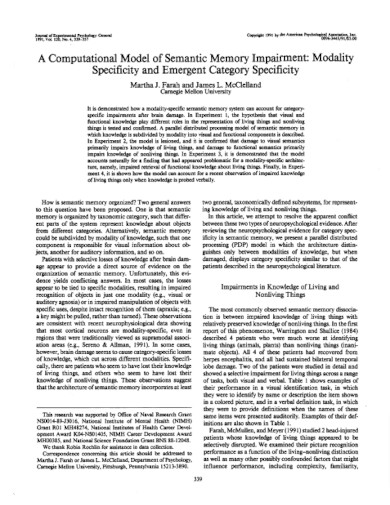
stanford.edu
13. Electrophysiology Reveals Semantic Memory Use in Language Comprehension
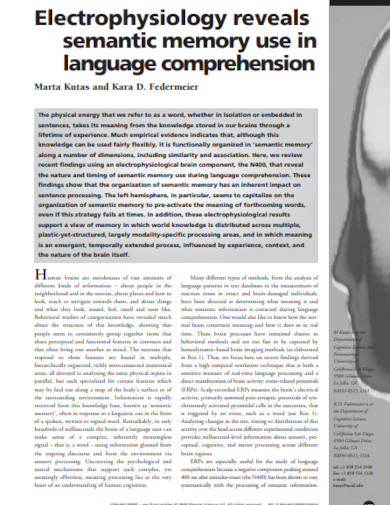
colinphillips.net
14. Conceptual Space for Episodic and Semantic Memory
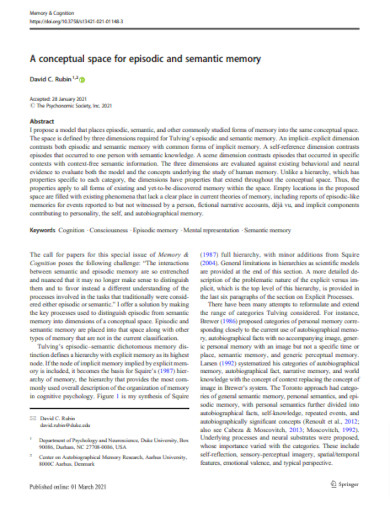
sites.duke.edu
15. Rethinking the Distinction Between Episodic and Semantic Memory
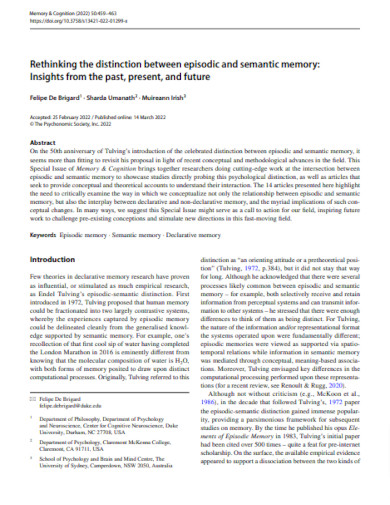
static1.squarespace.com
16. Long-Term Semantic Memory for Robotic Agents Example
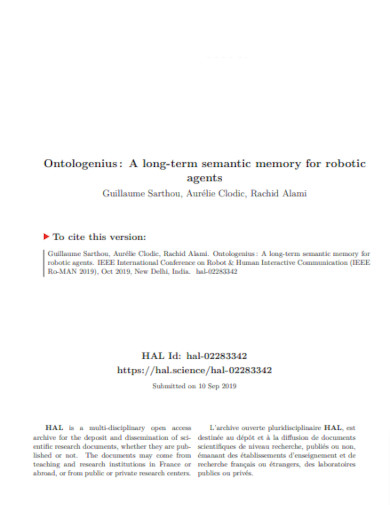
hal.science
17. Processing Speed for Action and Semantic Memory
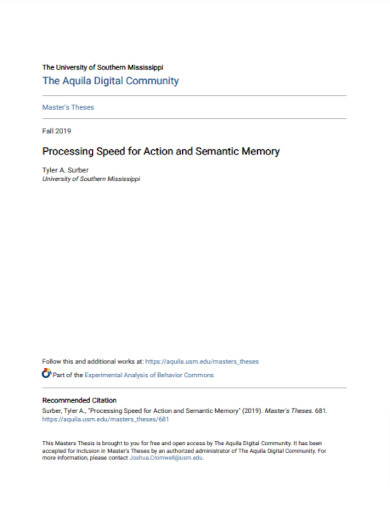
Sourceaquila.usm.edu
18. Episodic and Semantic Memory and Imagination
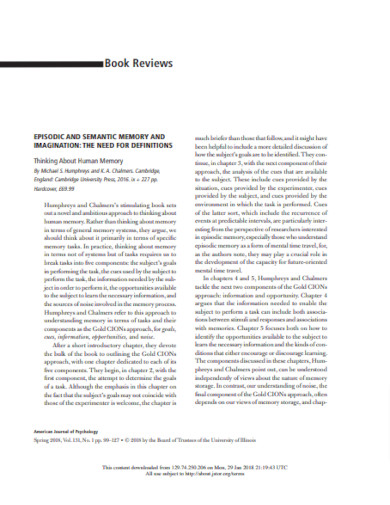
phil-mem.org
19. Modeling Semantic Memory Example
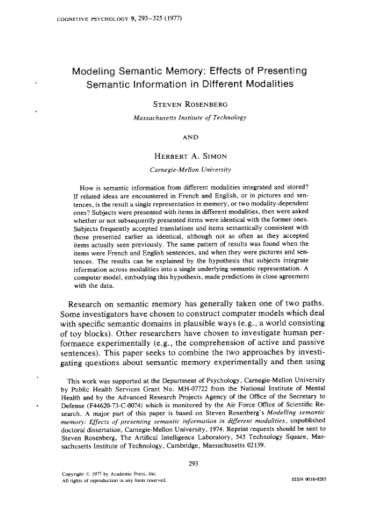
iiif.library.cmu.edu
20. Symbolic Semantic Memory in Transformer Language Models
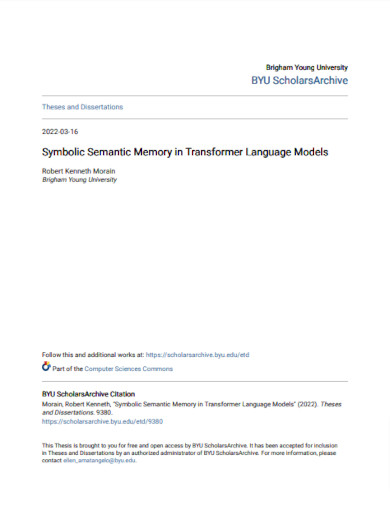
scholarsarchive.byu.edu
What Is Semantic Memory?
Semantic memory is a specific type of long-term memory a person has, which allows them to recall specific facts, events, descriptions, and definitions. The objective of this type of memory is to store information that has little to no connection to the person’s emotional health or state. If you want to delve deeper into semantic memory, you may use any of the semantic memory examples, samples, and articles on the links in the sections above.
How to Improve One’s Semantic Memory
Like soft skills and hard skills, a person needs to practice and consistently use their semantic memory to improve their skills capabilities. But that is not the only factor that can affect the person’s semantic memory, as one’s mental and physical health can improve or impair one’s memory.
Step 1: Practice Fact Recalling
One of the best ways to practice one’s semantic memory is through the practicing and usage of fact recalling. This activity requires the person to learn about the fact and consistently recall the said information throughout a specified period. Not only will this improve the person’s semantic memory, but it will also help improve the other types of memory.
Step 2: Conduct Self-Testing
It is important to know one’s limit when it comes to semantic memory, as it can determine how much factual information the person can recall. You can conduct self-testing, which will help you determine how much objective information you can recall in a short period.
Step 3: Try Concept Linking
Concept linking is a technique a person can use to help with their semantic memory and recall. A person can achieve this by linking together two or more related information or data through similar elements, categories, subcategories, and characteristics.
Step 4: Try Using Brain Teasers or Exercises
Brain teasers like sudoku, crossword, and other types of activities will actively use the brain and will help work and improve specific facets of one’s brain. These brain teasers will also help improve and maintain one’s overall memory.
FAQs
Semantic memory is a subtype of long-term memory that the brain categorizes as objective and factual data and information. Short-term memory is a type of memory that only holds information and data temporarily, which is not learned or repeated.What is the difference between semantic memory and short-term memory?
Implicit memory is a subtype of long-term memory that involves any information, data, and technique the person has learned subconsciously, like motor skills and other cognitive abilities. Semantic memory is a subtype of long-term memory that involves learned facts, information, and data the person deems as important.What is the difference between implicit and semantic memory?
Episodic memories are specific types of memories the person stores in their long-term memory that deals with the person’s autobiographical memories or episodes alongside the images, emotions, sounds, and taste present in the memories or episodes. Semantic memory is a specific type of memory the person stores in their long-term memory that deals with factual information, data, and description that has no emotional bearing.What is the difference between episodic and semantic memory?
Semantic memory is a type of long-term memory that deals with the storing and recalling of factual information or data that has little or no emotional impact on the person. People often use semantic memory when they recall objective information, which they can use to communicate or improve their skills.

